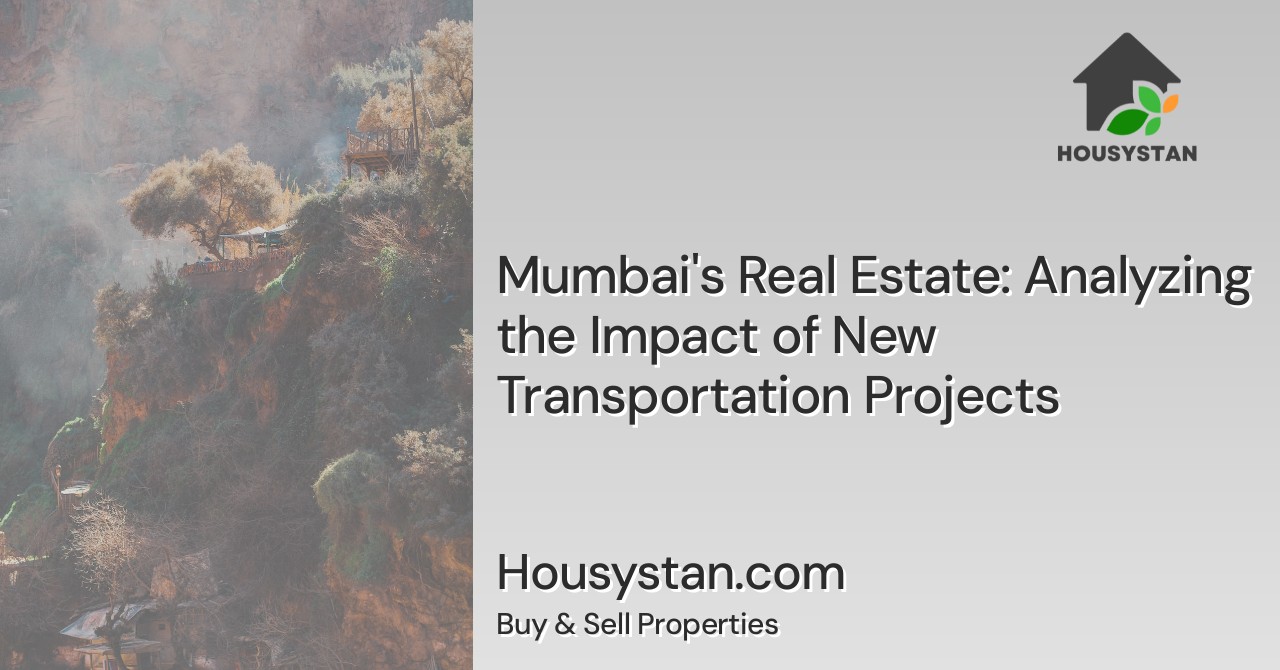Mumbai's Real Estate: Analyzing the Impact of New Transportation Projects
Read latest blogs and articles from Housystan

The Information mentioned here was last updated on:
29/1/2026Mumbai's Real Estate: Analyzing the Impact of New Transportation Projects
Mumbai, renowned as India’s financial powerhouse, continues evolving with transformative infrastructure. Recent transportation developments—such as metro expansions, new flyovers, and coastal roadways—are dramatically altering the city’s landscape. These projects are not just enhancing daily commutes but also significantly influencing Mumbai’s property market. Understanding how these transit improvements affect real estate is crucial for investors, homebuyers, and developers seeking growth opportunities within the city’s dynamic environment.
Areas like Andheri, Bandra, Thane, and Navi Mumbai are witnessing substantial growth due to improved connectivity. The Mumbai Metro network, consistently expanding, offers seamless travel across neighborhoods, reducing travel time and easing congestion. As a result, residential and commercial spaces near new metro stations experience increased demand, leading to property appreciation. Localities once considered distant or less accessible are now prime real estate hotspots, drawing attention from families and professionals seeking convenience and lifestyle upgrades.
- Verified Tenants/Buyers
- Unlimited Property Listing
- Zero subscription/charges fee
Connectivity enhancements extend to the Mumbai Trans Harbour Link and the Coastal Road project, both designed to connect key business districts and suburbs. These strategic routes are expected to boost accessibility between South Mumbai, Navi Mumbai, and the western suburbs, triggering a surge in new residential developments and commercial hubs along these corridors. As accessibility improves, property values tend to rise, offering excellent returns for early investors. Additionally, businesses benefit from expanded talent pools, as professionals find it easier to commute from emerging neighborhoods.
The ripple effects of these transportation projects are also visible in the retail, hospitality, and office space sectors. Malls, hotels, and commercial complexes are mushrooming near transit junctions, creating new employment opportunities and supporting local economies. Furthermore, with the government focusing on sustainable and eco-friendly transit solutions, Mumbai’s real estate market is expected to attract environmentally conscious buyers and global investors.
In summary, Mumbai’s ongoing transportation upgrades are reshaping the city’s real estate landscape. Buyers and investors who leverage these changes stand to gain from long-term value appreciation and enhanced quality of life. Staying informed about infrastructure developments ensures smarter property decisions in one of India’s most vibrant urban centers.